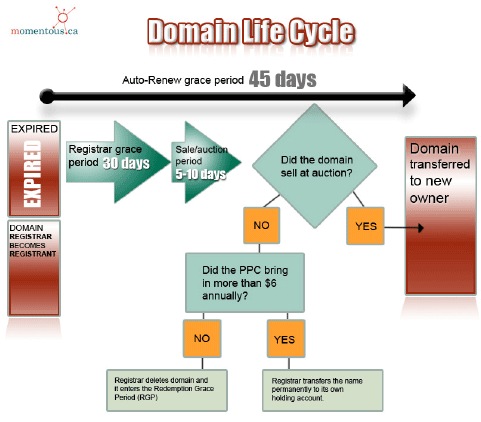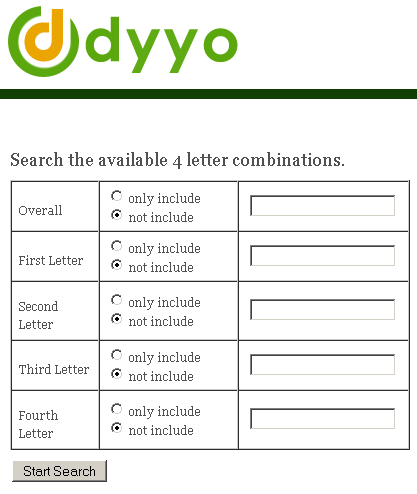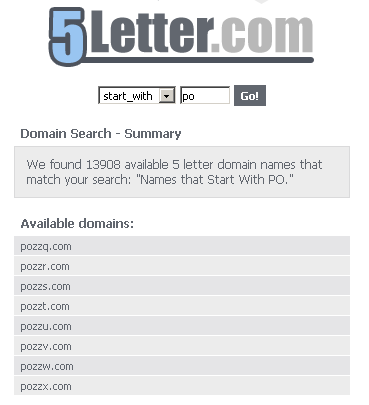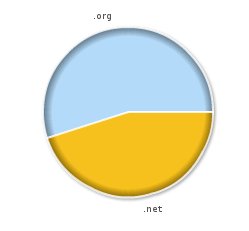What kind of impact will a domain name have on the success of the website hosted there? There are basically two schools of thought around the web.
a) “The domain is not a big deal” school: those people argue that while a good domain can help on the success of a website, it is not an important factor, because people are increasingly using browser bookmarks and subscription tools like RSS feeds, removing the need for them to remember the name of the website that they want to visit.
b) “The domain is vital” school: those people argue that despite bookmarks and RSS feeds, domains still play a very important role on the success of the websites built upon them. A good domain, therefore, can be the difference between a successful site and a flop.
Before proceeding with my analysis, however, I think it is important to define what a “good domain name” is. Summing it up, a good domain:
- is short
- is easy to remember
- is easy to spell
- is descriptive or brandable
- does not contain hyphens and numbers
- has a .com extension
You can read more about that on the article The 7 Characteristics of Good Domain Names.
I belong to the “domains are vital” school of thought, and I will tell you why, both with words and with numbers that I gathered on a small research.
Bear in mind that whenever I mention “domain name” throughout this article, I am also referring to the name of the website itself. In the majority of the cases those are the same after all, and for marketing purposes they should always be.
Everything Starts with the Domain
The biggest flaw on the argument of people that don’t think that domains play an important role on the success of websites lies on the assumption that web surfers will bookmark or subscribe to a given website right after visiting it.
That is not the case. Most people need to come across a website several times before making the decision to bookmark it or to subscribe to its service.
On the first visit they will come to that site via a link on another website or on a search engine. The domain name, however, will play an important role on the subsequent visits. If it is short, easy to remember and easy to spell, a visitor will not have a problem going back to that site in the future. If the domain is very long, hard to remember and hard to spell, however, there are great chances that the visitor will end up somewhere else, and will probably never return.
Now I am not talking exclusively about users that will remember your domain and type it directly in their browser URL bar after a couple of days. If your domain is long, difficult to spell or contains dashers and numbers, there is a possibility that the user will completely forget about it. After two or three days he won’t even remember that your site exists. A short and catchy domain, on the other hand, will stick on the mind of the visitor. Even if he will not be able to type that, Google is there to help him find your website again.
Another point to take into consideration is that connection between the domain name and the brand of a website. When you have dozens, if not hundreds of websites competing for the same niche, the brand factor will be determinant. If you then realize that the brand of any website is heavily anchored to its domain name, you can see how important domains become.
The Domains of the Top 250 Websites in the World
I know that numbers and facts speak louder than words, so instead of extending my prose I will back up my claims with a small research that I did. Basically I gathered the top 250 most popular websites in the world (according to Alexa) and counted how many characters and words their domains had. I also checked if they had a .com or another extension (e.g., .net, .org, .info and so on). Notice that sites with a foreign extension were excluded from the list for the sake of simplicity.
The results were pretty interesting. First of all, the average number of characters on the domain names was 7,15. The graph below presents the number of characters on the y-axis, and all the 250 domains on the x-axis. The red line is the average (the statistical mean).

Other interesting findings include:
- Over 177 out of 250 domains had 8 characters or fewer. That is more than 70% of them
- The average number of words was 1,58
- The most common domain name (statistical mode) had 7 characters and 2 words
- 86,2% of the domains had a .com extension
- only 11 out of the 250 domains (4,4%) contained a number
- only 3 out of the 250 domains (1,2%) contained a dash
The Domains of the Last 250 Front Page Stories on Digg
One could say that the list with the 250 most popular sites in the world could be biased due to the presence service portals like search engines, email services, social networks and upload sites. I don’t think that the bias would be significant, but in order to remove the doubts I also profiled the domains of the last 250 websites that reached the front page of Digg. Those are mostly content websites, so they should complement the initial findings.
The numbers here point into the same direction. The average number of characters on those domain names was 8,47. Slightly higher than on the previous case, but still a small number. The graph below illustrates that.
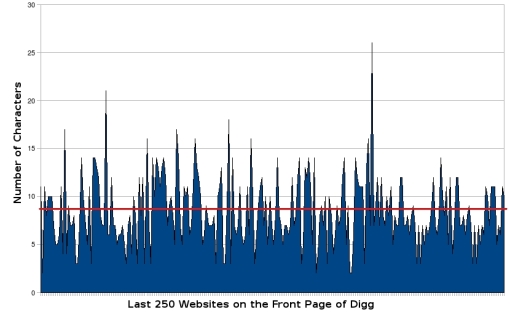
The average number of words on the domains is 1,67, which is very similar to the number found on the previous case. Other interesting findings include:
- 89,6% of the domain names had a .com extension
- 146 out of the 250 domains (58,4%) had 8 or fewer characters
- only 4 out of the 250 domains (1,6%) contained a dash
- the most common domain (statistical mode) had again 7 characters and 2 words (e.g. youtube.com)
Oh But I know A Website That Is Popular And…
At this point I am pretty sure that some of you are thinking “Oh but I know a website that pretty popular and has a really long and confusing domain name.”
Well, you just found an exception to the rule.
It is like when you discuss smoking and health problems. Even if the statistics say that smoking will reduce your life expectancy by 20 years, there is always someone that has an uncle or a grand father that smoked his whole life and yet lived to the age of 100 years.
Your uncle or grand father represents the exception, and in no way it diminishes the validity of the statistical findings. The same applies to the statistics we showed above, even if you know a popular website with a really long and weird domain.
Conclusion: The Law of Domain Names
Based on that evidence, here is the conclusion (or the law of domain names):
All other things being equal (e.g., marketing budget, content quality, design, affiliation with larger websites and so on), a website with a good domain name will always outperform a competitor with a bad or average domain name.
Does this means that if you have a long or hard to remember domain you are doomed to fail? Not at all. But if you have a competitor on your niche that has a better domain, you will need to produce better content, offer a better service, or spend more money in promotion to compensate for that.
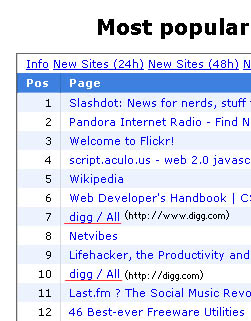 Having two different versions might damage you in popular lists and social bookmarking sites as well. The picture on the right was extracted from Populicious, a site that lists the most popular sites on Delicious. If you take a look you will notice that Digg is listed both at the 7th and 10th position. This happens because the list treats “http://www.digg.com” and “http://digg.com” as two different sites. Shoud only one version be available the combined number would place Digg on the first position of the list.
Having two different versions might damage you in popular lists and social bookmarking sites as well. The picture on the right was extracted from Populicious, a site that lists the most popular sites on Delicious. If you take a look you will notice that Digg is listed both at the 7th and 10th position. This happens because the list treats “http://www.digg.com” and “http://digg.com” as two different sites. Shoud only one version be available the combined number would place Digg on the first position of the list.
